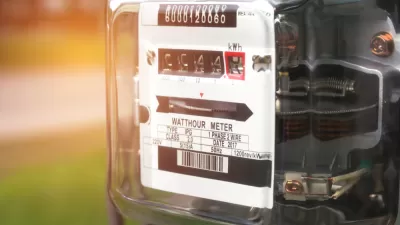Beginning last year, states increased gas taxes and entered public-private partnerships, as are some cities. But it's not an easy haul for cities nor states, and Congress has yet to agree how to furnish sufficient revenue to match current spending.
"Before this burst, no state had raised its gas tax for nearly four years, according to the Institute on Taxation and Economic Policy (ITEP), a nonprofit research group," writes Josh Mitchel. The first state to break the gas tax increase freeze was Wyoming.
See ITEP's publication, "How Long Has it Been Since Your State Raised Its Gas Tax?" to see a chart that shows (as of April 1, 2014) "the number of years that have elapsed since each state’s gas tax rate was last increased." Alaska is the champion at almost 44 years.
More common is the use of public-private partnerships, also referred to as P3s, for specific projects that governments might otherwise be unable to finance.
Crimped for funds, a slew of cities and states such as New York, Texas and Indiana are teaming up with private companies to build roads, bridges and other public projects, moving into zones once funded by gas-tax dollars or traditional state bonds. These partnerships replicate a model long practiced in Europe, with private firms putting up initial funding in exchange for future guaranteed payments, through toll revenue or other sources.
FULL STORY: States Raise Gas Taxes to Pay for Infrastructure

Planetizen Federal Action Tracker
A weekly monitor of how Trump’s orders and actions are impacting planners and planning in America.

Congressman Proposes Bill to Rename DC Metro “Trump Train”
The Make Autorail Great Again Act would withhold federal funding to the system until the Washington Metropolitan Area Transit Authority (WMATA), rebrands as the Washington Metropolitan Authority for Greater Access (WMAGA).

The Simple Legislative Tool Transforming Vacant Downtowns
In California, Michigan and Georgia, an easy win is bringing dollars — and delight — back to city centers.

The States Losing Rural Delivery Rooms at an Alarming Pace
In some states, as few as 9% of rural hospitals still deliver babies. As a result, rising pre-term births, no adequate pre-term care and "harrowing" close calls are a growing reality.

The Small South Asian Republic Going all in on EVs
Thanks to one simple policy change less than five years ago, 65% of new cars in this Himalayan country are now electric.

DC Backpedals on Bike Lane Protection, Swaps Barriers for Paint
Citing aesthetic concerns, the city is removing the concrete barriers and flexposts that once separated Arizona Avenue cyclists from motor vehicles.
Urban Design for Planners 1: Software Tools
This six-course series explores essential urban design concepts using open source software and equips planners with the tools they need to participate fully in the urban design process.
Planning for Universal Design
Learn the tools for implementing Universal Design in planning regulations.
Smith Gee Studio
City of Charlotte
City of Camden Redevelopment Agency
City of Astoria
Transportation Research & Education Center (TREC) at Portland State University
US High Speed Rail Association
City of Camden Redevelopment Agency
Municipality of Princeton (NJ)




























